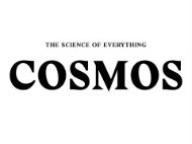Faculty News
—
Professor David Yermack's joint research on the investment returns and distribution rates for U.S. non-profit endowment funds is highlighted
—

Excerpt from Poets and Quants -- "That was the stunning finding of a paper by Poets & Quants’ Professor of the Week, Sandeep Dahiya of the McDonough School of Business at Georgetown University, along with David Yermack of New York University Stern School of Business. Their working paper, 'Investment Returns and Distribution Policies of Non-Profit Endowment Funds,' was published in May by the European Corporate Governance Institute."
Faculty News
—

Excerpt from Poets and Quants -- "That was the stunning finding of a paper by Poets & Quants’ Professor of the Week, Sandeep Dahiya of the McDonough School of Business at Georgetown University, along with David Yermack of New York University Stern School of Business. Their working paper, 'Investment Returns and Distribution Policies of Non-Profit Endowment Funds,' was published in May by the European Corporate Governance Institute."























